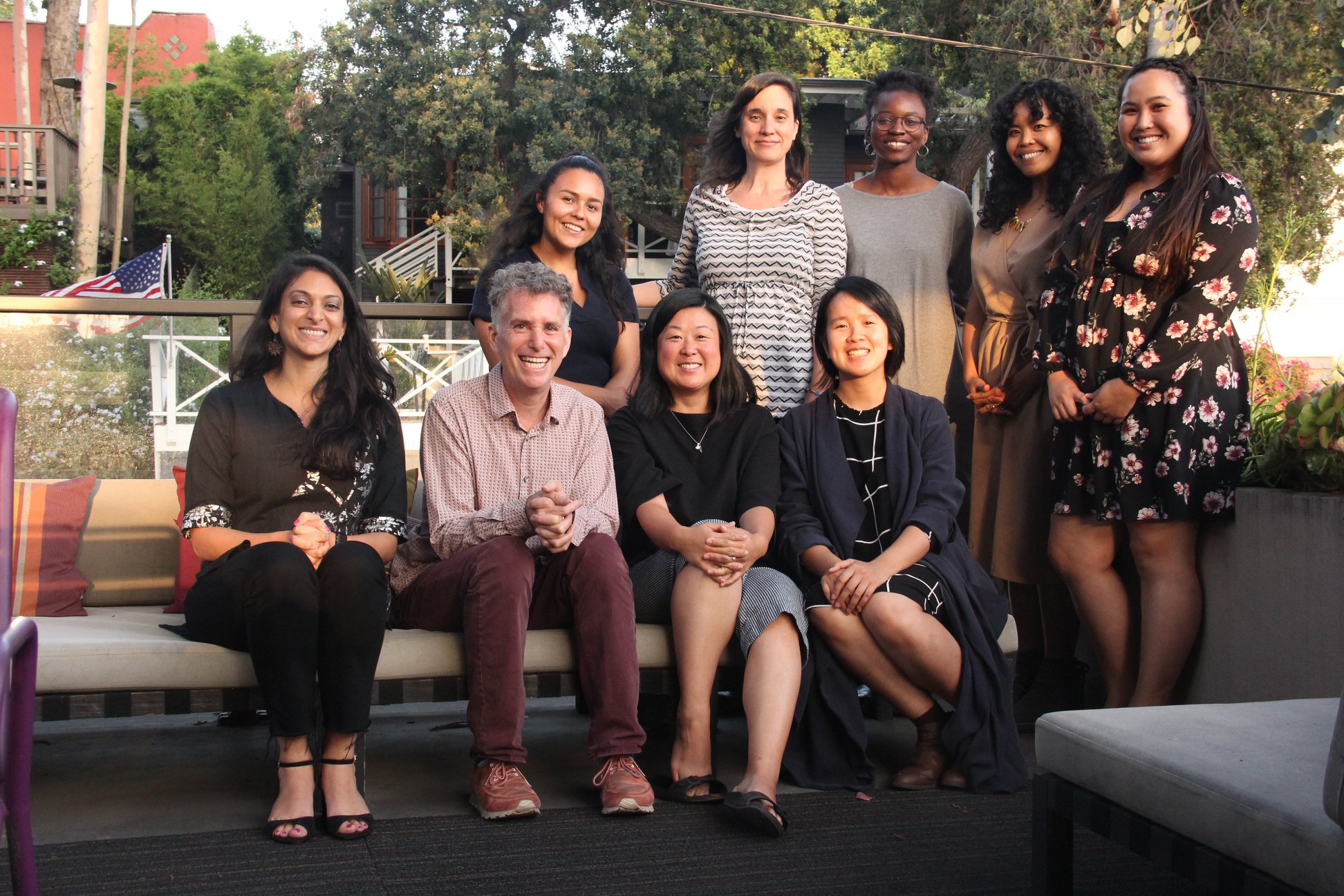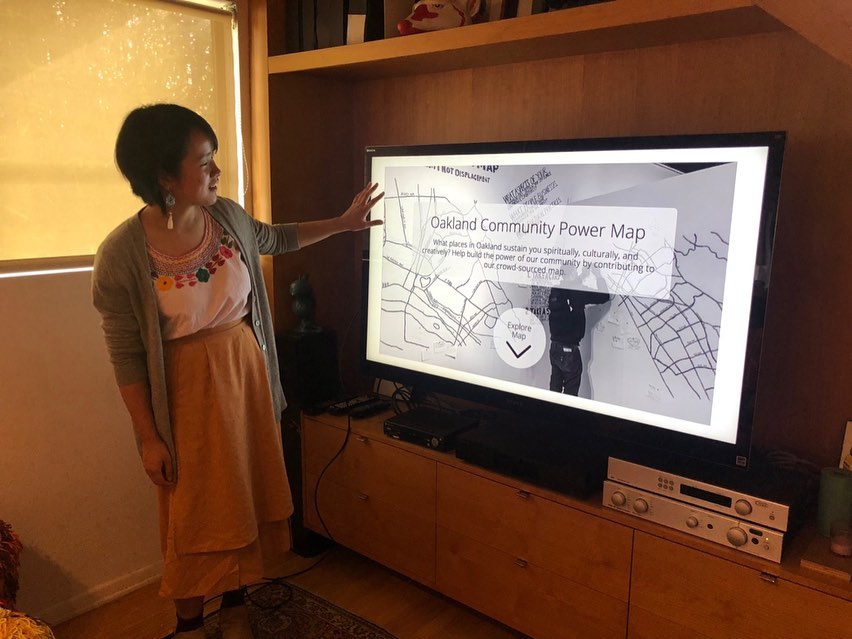
04 Sep Sabrina Im – How Everyday Urbanism Manifests Radical Vulnerability
Coming into the Urban Futures Lab Fellowship has been nothing but incredibly exhilarating, and mind blowing. When I first learned about Public Matters last summer when I was at a Sunday Jump open mic (which is held at the Pilipino Workers Center), I never would have imagined myself a year later being where I am now.
This journey is now five months in, and we just wrapped up our creative civic engagement module.
During this module I learned so MUCH. So many histories, and so many stories! A concept I didn’t even know had an exact name was Everyday Urbanism—which places great importance in meanings attached to places and spaces, and gives value to what already exists in the city. I am seeing LA in ways I haven’t before, and exploring neighborhoods I haven’t been able to get to beyond my own exploration. All this learning is incredibly humbling, and I can’t wait to keep on manifesting and creating with my fellow Fellows!
One of the projects that each of the Fellows worked on during this time was researching and presenting on either an artist, collective, or group doing creative civic engagement work. I chose to present on the Anti-Eviction Mapping Project, which is a volunteer collective that started in 2013 in the San Francisco Bay Area in response to the rise of the contemporary tech boom.
Their work focuses on creating counternarratives by collaborating with multiple community partners to document housing trends and their gentrifying effects. All of the research and stories that are collected or crowdsourced from residents, scholars, activists, and community organizations are then turned into digital maps, oral history work, films, zines, and murals.
The entire project is publicly accessible through their website, which further serves their mission to reframe conversations about displacement in the Bay Area, so that residents don’t just speak about loss and destruction, but also about community assets worth celebrating and fighting for.
AEMP is constantly evolving as a collective, in order to meet the needs of the project’s growth, their communities’ well-being, and continue building coalitions. As a poet, I was particularly interested in how they approach building an archive of data and stories, because this is a process I would like to one day start with the Cambodian diaspora. I truly admire how the collective centers the stories of those who have been displaced, by documenting their stories through short films, audio interviews, maps, zines, and murals. These visuals, combined with additional context from both historical and contemporary data, provide multifaceted perspectives that help put the people in the narratives first, rather than reducing them to numbers and statistics.
Capping off our module was a Supper Club where the Fellows hosted our guests, Sara Daleiden and Theresa Hwang. Collectively we talked about radical vulnerability and what that looks like. For me, radical vulnerability is being self-aware of one’s strengths and flaws, and celebrating both progress and setbacks, but sharing that journey with the people around you in order to create a safe space to nurture self-care, even while one is doing community work. This made me flashback to how in the past couple years, in doing my own exploring of LA and being part of community art spaces, I first started learning about these ideas. I also remembered that often times, I can still forget to practice self-care.
But Theresa shared with all of us about how practicing mindfulness has come to be not just a part of her personal life, but is becoming more ingrained in her work. Sara echoed these sentiments and very much emphasized the idea that by doing our own healing work, we can have shared learning, shared experiences, and truly be intentional and fully present for ourselves and each other. Both of them emphasized the value of opening yourself to all possibilities, and to never stay in one bucket, which is such a “slashy” trait. As a fellow “slashy” (someone whose interests, identities, and skillset span multiple disciplines) I fully resonated with all that they said.
I am still figuring out how to hold space for myself, so that I can show up better for my communities. But I am learning that it is better to strive for rigor and my best, and to keep that balance in order to avoid burnout. Everyone’s creative process is different, but it is in these intersecting conversations that I believe we are able to remind each other to be more kind to our bodies, and to celebrate our strengths as we keep growing as a whole. I believe when vulnerability is shared, that collective energy can be channeled into re-imagining and envisioning how each of our voices take ownership in preserving and uplifting narratives of the city.

